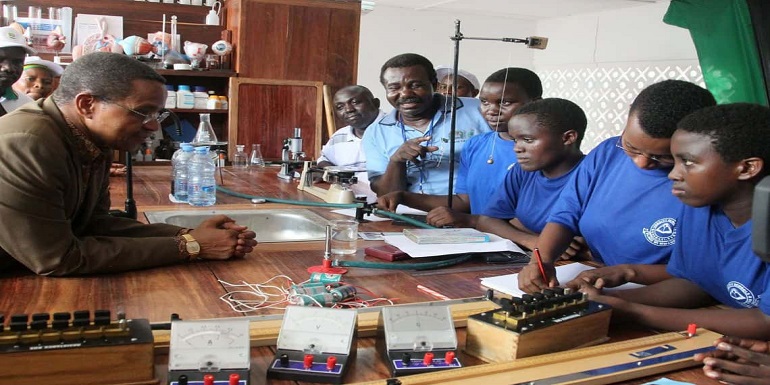THE ROLE OF CAREER COUNSELLING IN ECONOMIC DEVELOPMENT
Career guidance and counselling are ubiquitous for it exists everywhere human beings are found. This means career counselling can be seen as the process of assisting individuals in the development of lifelong work, focusing on workers role and interactions with other life roles such as proper orientation and current global trends in the world of work, counselling on dignity of labour and entrepreneurial characteristics such as determination, need for achievement, taking initiative, calculated risk-taking, creativity and innovativeness, and leadership among others.
DEFINITION OF TERM
The National Career Development Association(NCDA)(1997) defines career counselling as the process of assisting individuals in the development of life- career with a focus on the definition of the worker role and how that role interacts with other life roles. According to kolo (1999), career is a lifelong sequence of work, educational and leisure experience. This implies that career refers to the totality of ones activities, hobbies and training that gives him satisfaction throughout life
From the definitions proffered above, career counselling can, therefore, be seen as the process of assisting prospective job trainees ( students and apprentices) make useful career decisions that may enable them to make appropriate career choices or adjustments which will bring about satisfaction throughout their life span .
The purpose of career counselling includes but not limited to identification of personal preferences, exploration of career options, collection and collation of data about careers, making decisions about careers, implementing change from the present situation and assisting with employment seeking or job application issues.
TYPES OF CAREER COUNSELLING
There are different types of career counselling including, career (vocational), marital, personal-social and educational counselling among others.
But for the purpose of this paper, our focus would be on vocational counselling and entrepreneurship skills development and its consequent impact on economic development.
THE ROLE OF TECHNICAL AND VOCATIONAL EDUCATIONAL IN ECONOMIC DEVELOPMENT
Vocational education is the acquisition of necessary occupational and technical skills and their application in solving practical problems. It is also known as technical education. It is a major way of equipping people with entrepreneurial skills. It involves personnel who are technically oriented to be involved in the planning, implementation and teaching of various technical programs geared towards production.
Ever since the industrial revolution in the late 18th century, progress and prosperity have been closely identified with economic development (jomo 1993). The economic competitiveness of a country depends on the skills of its workforce. The skills and competencies of the workforce, in turn, are dependent upon the quality of the country’s education which is perceived as one of the crucial elements in enhancing economic productivity (min 1995). Based on social efficiency theory, schools should prepare and supply future workers with appropriate knowledge and skills to enhance their productivity and therefore, promote economic growth (Finch 1993; LaBarre, 1997)
Nevertheless, vocational education has sometimes become a tool for addressing the economic, political, and social crises that are threatening the political and economic stability of some nations. Rising unemployment, lack of skilled workers, high dropout rates, and the changing demographic nature of the workforce have placed the issue of workforce education high on the educational reform agenda. ( Giroux 1991)
Traditionally vocational education has prepared students for specific skills. However, in the post –taylorist work environment, workers are expected to perform more broadly-defined jobs (Hirsch & Wagner,1995). Therefore, a broad-based education is required. In the new economic environment, vocational education is expected to produce an educated, skilled, and motivated workforce (Mustapha 1999)
CHALLENGES
Some of the challenges of technical education development include;
1. The general perception of the society towards vocational education has been seen, as it is meant for poor individuals in the society, street thugs, school dropouts, illiterates and even physically challenged people. This discourages youths who have a genuine interest in it, thereby robbing the nation of development.
2. The nonchalance of lawmakers and the executive has shown that the government has been able to do very little to advance vocational training because it is not seen as a priority in the nations development. Therefore, the necessary support has not been granted.
3. The education sector is generally underfunded and the technical aspect is grossly underfunded. By not providing enough funds for vocational programmes to go on smoothly, the government contributes to its gradual death.
4. The issue of inadequate facilities emanates from inadequate funding. Standard facilities for the development of vocational education are lacking. Even in places where there are facilities, they are not enough and are mostly in poor conditions; a sign of bad maintenance.
5. Lack of teaching materials and learning aids hinders teachers from doing their jobs effectively. This, in turn, leads to students getting inadequate knowledge because they lack crucial information.
6. Lack of qualified and properly trained instructors in teaching courses in vocational education also serves as a mitigating factor in the progress of vocational education.
7. Lack of involvement by private investors and corporate organisations in vocational educational continue to leave the vast potential of vocational training untapped.
8. The slow pace of technological advancement in some countries precisely Nigeria has scuppered the growth of technological innovation. Vocational education rests on science and technology and since scientific innovations are not incorporated in the curriculum, we produce vocational education graduates who are not able to function up to the worlds standards.
9. Technical education is supposed to provide learners with practical knowledge as opposed to the poor curriculum development obtained in Nigeria vocational curricula which focuses on academic knowledge at the expense of the more important knowledge from the engineering and technological fields.
10.The poor implementation of policies by the executives and laws made to improve vocational education are not effective enough.
RECOMMENDATIONS
Based on the challenges enumerated above and the threat it poses to the progress of technical and vocational education and training, this article has gone ahead to proffer solutions through several recommendations for policy, practice, and future research implementation.
1. The government should work collaboratively with the private sector to maintain and expand vocational education and training. In particular, the government should draw upon the resources of employers and solicit private sector investment in vocational education and training
2. Federal, state, and local agencies should provide a clear vision and training. In addition, the government should provide effective leadership and incentives to the private sector to encourage partnerships and collaboration with vocational education institutions
3. The government, especially the ministry of education, should seek input from numerous stakeholders, such as educators, business /industry personnel, parents, students, academicians, and other professionals, before formulating major policy decisions regarding vocational education and training
4. A balanced approach should be emphasized in the school curriculum through the integration of technical, employability, and generalizable skills in vocational programs. In addition, vocational curricula should be flexible and responsive to the present and future needs to the nation
5. The government should reduce bureaucracy and increase the efficiency and effectiveness of vocational programs. Further, the ministry of education should consider decentralizing the management of public vocational institutions and encourage the expansion of private and community-supported vocational schools and training institutions.
6. Policymakers should introduce legislation related to new reform initiatives such as school/business partnerships, school-to-work activities, technology preparation, and workforce development to sustain employer and private sector commitment to education, training, and human resource development.
7. Staff providing technical and vocational education training should have relevant industrial experience, in addition to their qualifications.
8. The ministry of education should ensure that all teachers in the technical and vocational education programme, undertake annual professional development, in the relevant technical and vocational education training areas, to ensure that they remain relevant and updated with the best practice in their areas.
9. Guidance counsellors should be employed to guide and counsel the aspiring students on career choice so that they will match their abilities towards creating opportunities or efficiently utilising opportunities available for them.
10.Ensure qualities central through effective delivery, monitoring and evaluation of technical vocational education training programmers, products and services.
CONCLUSION
From the challenges and recommendations on the role of technical and vocational education and training, it is suffice to say that the above points to the conclusion that career guidance and counselling is about creating a better economy that would work for the working people, as educators and employers believe that technical and vocational programs are more appropriate than academic programs for developing new skills and the ability to use contemporary technologies.
In terms of employability, exposing students to proper career counselling will go a long way to reducing the over-dependence on the government for employment. The need to boost technical and vocational education and training has become more imperative in this dispensation where existing vacancies in public and private establishments appear to be too slim to accommodate the teeming unemployed graduates. Students should be encouraged from the beginning to consider self-employment as a plausible option because government establishment is already saturated.
Written by
GIG105.COM
SAPHIRA GLOBAL CENTRE FOR SOCIAL DEVELOPMENT













